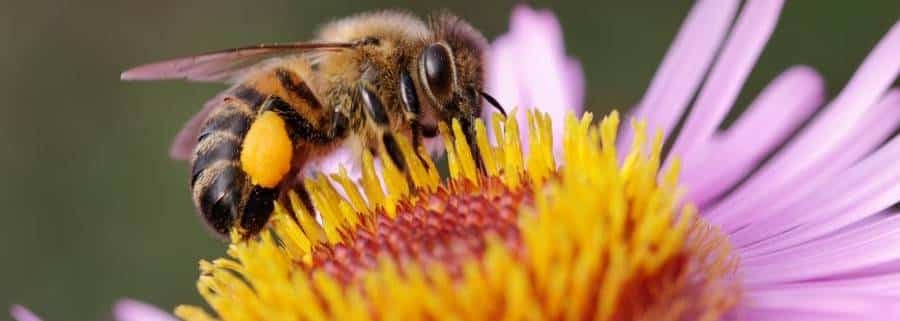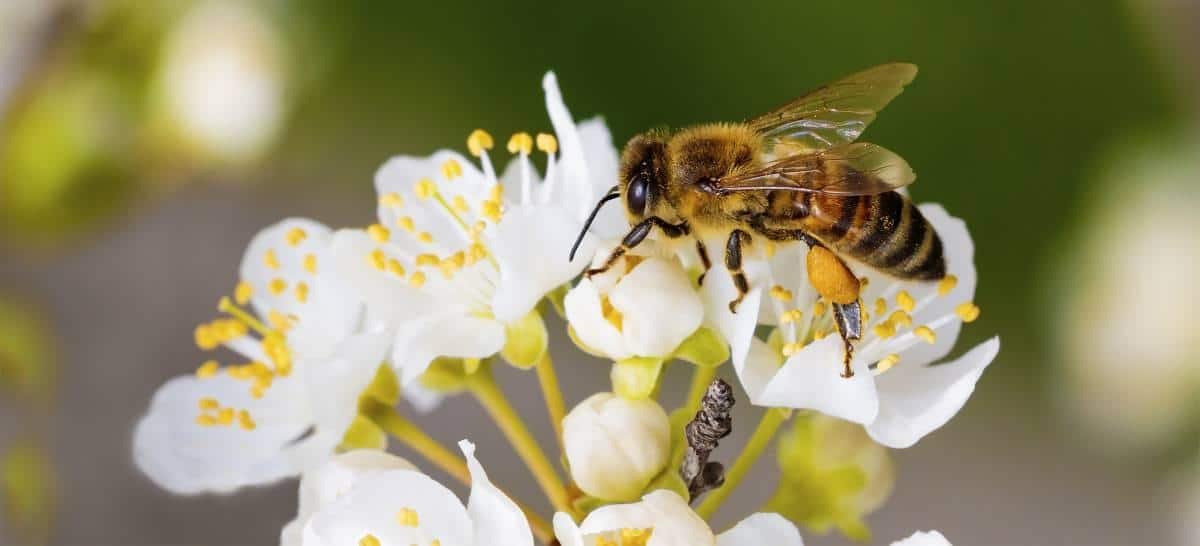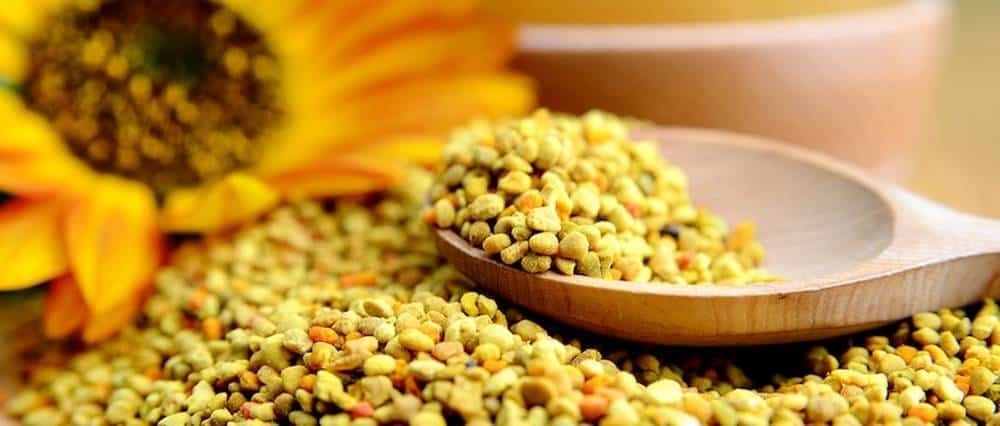
In today’s fast-paced world, with the hustle and bustle of our busy schedules, it can be challenging to find the time and energy to prioritize our health and well-being.
As we rush from one task to another, it’s easy to neglect the importance of proper nutrition, leaving us feeling depleted and run down. Fortunately, nature provides us with a powerful solution to support our daily nutritional needs: bee pollen.
Packed with vitamins, minerals, and essential nutrients, bee pollen is a potent superfood that can help us maintain optimal health and vitality in the face of our demanding daily schedules. In this article, we’ll explore the benefits of bee pollen, Why we need it and how it can help us stay healthy and energized, even on our busiest days.
What is Bee Pollen?

ee pollen is a mixture of pollen, nectar, enzymes, honey, and wax that worker bees collect from flowers and bring back to the hive. It’s a rich source of vitamins, minerals, antioxidants, protein, and carbohydrates.
Bee pollen has been used as a dietary supplement for its potential health benefits, such as boosting the immune system, reducing inflammation, and improving energy levels. Some people also use bee pollen to treat allergies, although the scientific evidence for this is mixed.
In addition to its potential health benefits, bee pollen is significant for its role in pollination. As bees collect pollen from flowers, they inadvertently transfer pollen from one flower to another, which helps to fertilize the plants and ensure that they produce seeds and fruit.
Without bees and other pollinators, many crops and wild plants would not be able to reproduce, which could have devastating effects on the environment and our food supply.
Is Bee Pollen Nutritious?
There are many research shows that Bee pollen is a superfood because it is rich in nutrients. There are about- amino acids
- triglycerides
- phospholipids
- vitamins
- macronutrients and micronutrients
- flavonoids
| Compounds | Percentage |
| Protein | 7–40%, including essential amino acids |
| Carbohydrates | 24–60% |
| Fats | 1–18%, including essential fatty acids |
| Flavonoids | 0.2–2.5% |
| Vitamins | A, B1, B2, B6, C, D, E |
| Minerals | Calcium, phosphorus, magnesium, potassium, sodium, iron, copper, silicon, selenium, zinc |
Health Benefits of Bee Pollen
Bee pollen is a nutritious substance produced by honeybees from the pollen of plants. It contains a wide range of vitamins, minerals, and other nutrients, which have been associated with various health benefits.
Here are some of the Top 9 health benefits of consuming bee pollen:

1) Rich in Nutrients:
Bee pollen is an excellent source of protein, vitamins, minerals, enzymes, amino acids, and antioxidants. It contains nearly all the essential nutrients that the body needs for optimal health.
2) Boosts Immune System:
Bee pollen has been shown to help boost the immune system, helping the body fight off infections, diseases and other harmful invaders.
3) Improves Energy and Stamina:
Bee pollen is high in energy-boosting compounds, making it an excellent choice for people who are looking for an all-natural energy boost.
4) Supports Digestion:
Bee pollen contains digestive enzymes and prebiotics that help to promote healthy digestion and prevent digestive issues.
5) Anti-Inflammatory Properties:
Bee pollen has been shown to have anti-inflammatory properties, which makes it beneficial for people who suffer from conditions like arthritis, eczema, and psoriasis.
6) Anti-Aging:
Bee pollen is high in antioxidants that help to prevent cellular damage and slow down the aging process.
7) Supports Healthy Weight Loss:
Bee pollen has been shown to support healthy weight loss, as it helps to control food cravings and improves digestion.
8) Improves Skin Health:
Bee pollen is high in vitamins and minerals that are essential for healthy skin, helping to prevent wrinkles and improve skin tone and texture.
9) Supports Healthy Hormonal Balance:
Bee pollen contains compounds that help to support healthy hormonal balance, which is important for overall health and well-being.
Overall, while the research on bee pollen’s benefits is limited, the existing studies suggest that bee pollen may offer several health benefits.
However, it’s important to note that bee pollen may cause allergic reactions in some people, particularly those who are allergic to pollen or bee stings.
As with any supplement or dietary change, it is best to speak with a healthcare provider before incorporating bee pollen into your routine.
How Do We Consume Bee Pollen For Our Daily Nutrition?
Bee pollen is available in different forms such as granules, capsules, tablets and tinctures.
Here is some guidance on how to consume bee pollen safely and recommended dosage.
1) Eating it Raw: Bee pollen can be eaten raw, straight from the jar, as a snack. It has a nutty and sweet taste.
2) Mixing it with Juice or Smoothies: Add a spoonful of bee pollen to your favorite juice or smoothie.
3) Sprinkling it on Foods: Bee pollen can be sprinkled on oatmeal, yogurt, or fruit to add a nutritious boost to your meal.
4) Capsules/Tablets: Bee pollen is available in capsule/tablets form, making it easy to take as a supplement.
5) Bee Pollen Tea: Boil bee pollen in water and make tea.
It is recommended to start with a small amount and gradually increase the amount consumed to avoid potential allergic reactions.
This will allow your body to adjust to the pollen and reduce the risk of any adverse reactions. Bee pollen can cause allergic reactions in some people, especially those with pollen or bee allergies.
If you have never consumed bee pollen before, it is recommended that you consult with a healthcare professional before adding it to your diet.
In summary, bee pollen can be consumed safely in various forms, such as granules, capsules, and tinctures.
Start with a small amount and gradually increase the dosage, and if you have any concerns or questions, consult with a healthcare professional.
Risk And Precautions
Potential risks and side effects of bee pollen consumption include:
- Allergic reactions: Some individuals may be allergic to bee pollen, which can result in symptoms such as itching, hives, swelling, and difficulty breathing.
- Asthma: In some cases, consuming bee pollen may exacerbate asthma symptoms.
- Digestive issues: Bee pollen may cause stomach upset, diarrhea, and constipation in some individuals.
- Pregnancy and breastfeeding: Pregnant and breastfeeding women should avoid bee pollen as there is not enough research available on its safety during these stages.
- Interaction with certain medications: Bee pollen may interact with blood-thinning medications, antibiotics, and other drugs.
Who should avoid bee pollen?
Anyone that is in the above categories should avoid having bee pollen or only after consult with a healthcare professional.
Summary
In conclusion, bee pollen is a natural supplement that contains a range of nutrients, antioxidants, and anti-inflammatory compounds that can offer many health benefits.
These benefits may include improved immunity, digestive health, and a reduction in allergy symptoms. However, it’s important to note that bee pollen can also pose some potential risks, particularly for those with pollen allergies or pre-existing medical conditions.
Therefore, it’s essential to consult with a healthcare professional before consuming bee pollen to ensure it’s safe for you.
Ultimately, bee pollen can be a healthy addition to a well-balanced diet, but it’s crucial to take appropriate precautions and always prioritize your health and well-being.
Other Article that you may interested:

![The Complete Guide to Bee Pollen [Buzzworthy Benefits] 1 7 Amazing Benefits Using Aloe Vera For Detox](https://aloeguide.com/wp-content/uploads/2020/10/Amazing-Benefit-Using-Aloe-Vera-For-Detox-400x250.jpg)
![The Complete Guide to Bee Pollen [Buzzworthy Benefits] 2 Aloe Vera For Constipation [Does it Really Works?]](https://aloeguide.com/wp-content/uploads/2020/10/Can-Aloe-Vera-Help-Constipation-Problem-400x250.jpg)
![The Complete Guide to Bee Pollen [Buzzworthy Benefits] 3 Bee Propolis [Benefits & Uses You Need to Know!]](https://aloeguide.com/wp-content/uploads/2021/06/Bee-Propolis-400x250.jpg)
![The Complete Guide to Bee Pollen [Buzzworthy Benefits] 4 Aloe Vera For Thyroid [Does it Really Works?]](https://aloeguide.com/wp-content/uploads/2021/05/Aloe-Vera-For-Thyroid-400x250.jpg)
![The Complete Guide to Bee Pollen [Buzzworthy Benefits] 5 Aloe Vera For GERD [Benefits & Uses]](https://aloeguide.com/wp-content/uploads/2021/04/Aloe-Vera-For-GERD-400x250.jpg)
![The Complete Guide to Bee Pollen [Buzzworthy Benefits] 6 Aloe Vera For Sunburn [How to Use & Does it Works?]](https://aloeguide.com/wp-content/uploads/2020/10/Aloe-Vera-For-Sunburn-400x250.jpg)